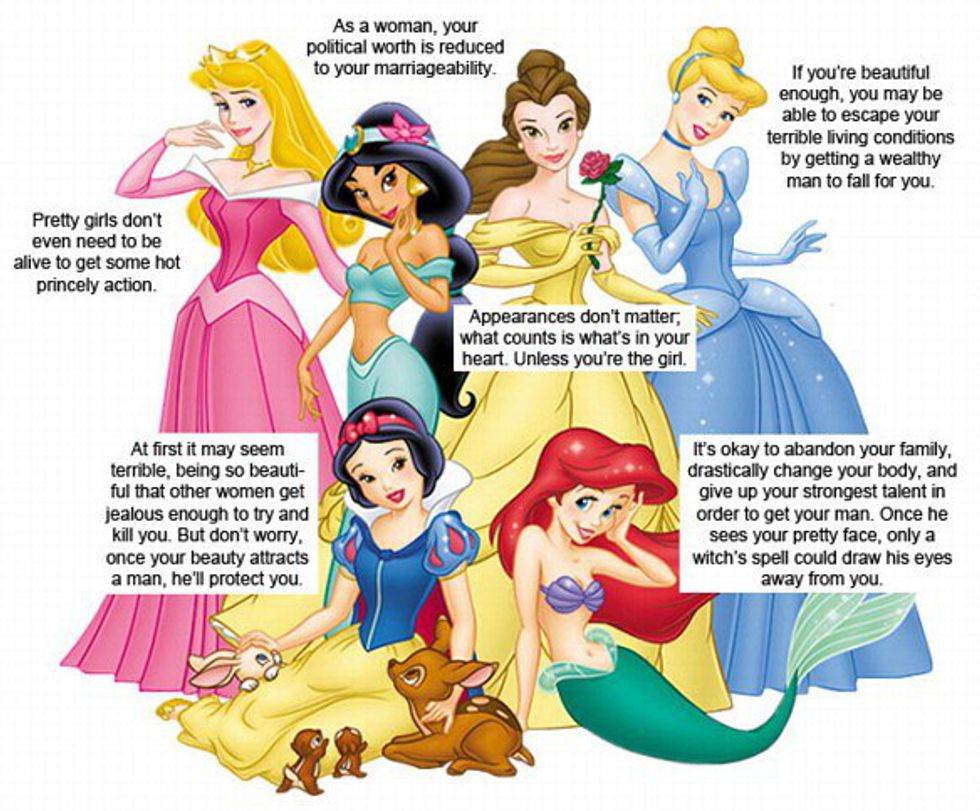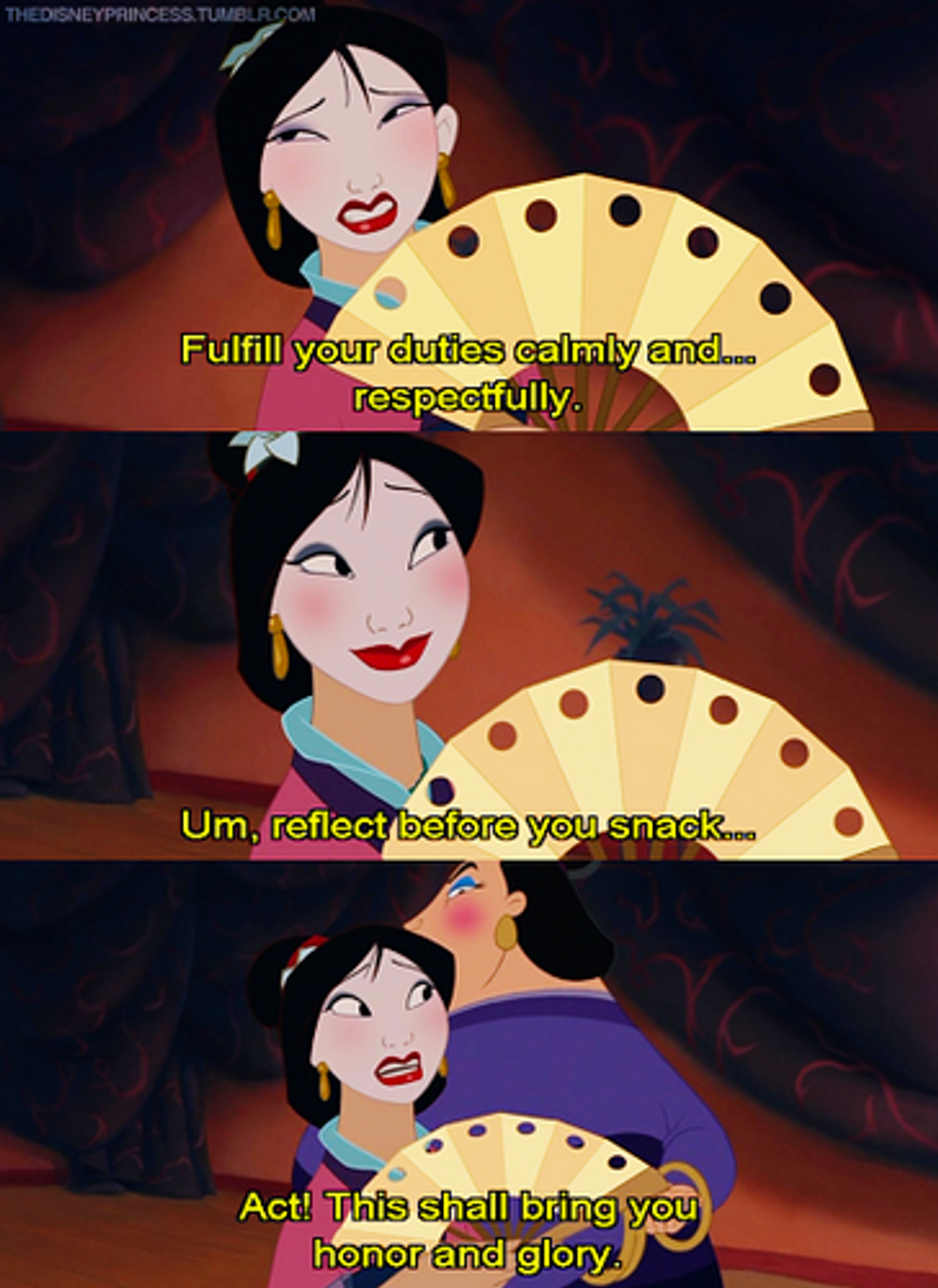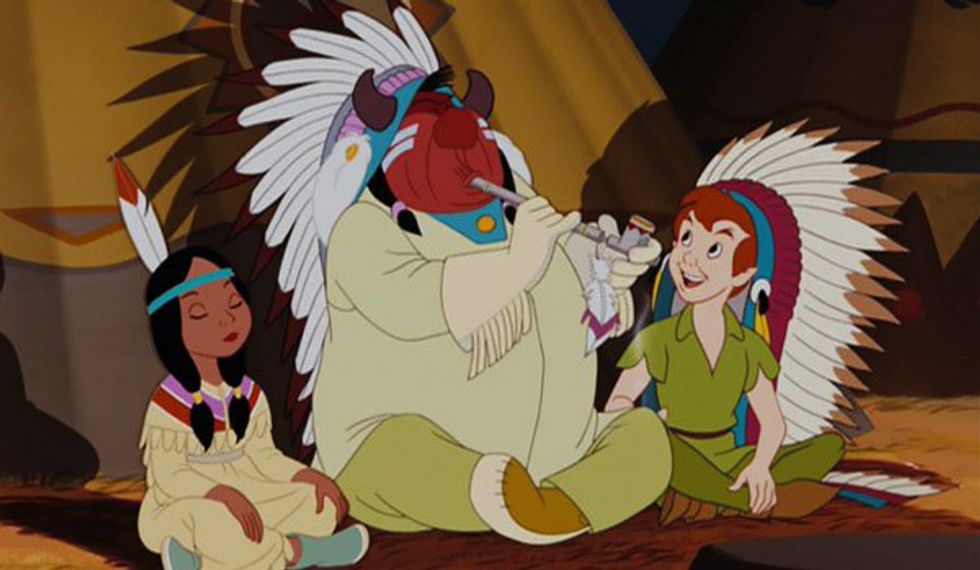Remember the good old days when we watched movies on a tiny television screen resembling an old PC computer? If you’re a 90’s kid, you probably remember sitting in front of one of these T.V sets with your jammies on ready to watch your favorite movie. At least, I do. I was that kid that would watch old Disney films on a huge cassette recorder. My grandma had a huge collection of these movies that I spent most of my childhood watching. List any film (including sequels) and I guarantee you that I have watched it at least three times. However, now that I am older, I’ve been beginning to see a darker side of Disney that I didn't understand as when I was 5.
For starters, the imposing white cis heteronormative stereotypes of relationships between women and men all hold similar reoccurring themes in most of the classics (Cinderella, Sleeping Beauty, Snow White, etc.). The storyline involves a female meeting a male heroine in which the heroine rescues the girl and they both “fall in love.” Although sometimes hidden, women have been portrayed to act as weak or submissive. This alludes to the idea that a girl needs to be protected by a man, which devalues women’s power in society. Even as Disney has grown to be mores progressive, the sexism continues to be apparent.
In both Mulan and Aladdin, Jasmine and Mulan are continuously pressured with societal expectations that come with the place of “being a woman.” Both women apparently need to find a husband and serve their role as being a good wife. As if getting married is the only way for women to serve value and substance. But, hey, it’s just Disney right? In addition with Disney’s heavy stamp on gender roles, they take things further into objectifying and sexualizing women on various accounts.
In The Little Mermaid, Ariel gives up her voice in order to win the love of the man of her dreams. She changes her physical appearance and uses her body to communicate with Prince Eric. This implies that a woman’s worth is reduced to her body-, which is not a great message FYI.
Disney also has the habit of romanticizing abusive and violent relationships, particularly abuse towards women. In Beauty and the Beast, Belle is attacked and imprisoned in the Beast’s home and is repeatedly the victim of his anger/temper. But somehow Belle forgets this and falls in love with Beast after seeing that he can in fact be vulnerable and sensitive. In other words, this is a horrible case of Stockholm syndrome that makes it okay for women to go back to their abusive spouse !! Disney, what’s good?
This last topic is something that I recently learned a couple days ago. The blatant racism and appropriation that Disney project in basically all of their films is not coincidental. While reading an article, I discovered the Walt Whitman (the creator himself) was quite an ignorant person. In a word, he was a jerk. Mr. Whitman was raised in Chicago and rural Missouri in the early 20th century and predominantly was named a white supremacist and anti-Semite. In fact, he was a supporter of the Nazi party during WWII and had thought about creating a Disney movie about the Nazis (which thankfully never happened). In addition, the man was not surprisingly sexist and disliked women. It’s no wonder Disney movies have always heralded these same morals. Racism towards people of color, including African-Americans and Native people were targeted in movies such as Peter Pan, Pocahontas, and Jungle Book. In these movies, POC’s cultures are either mocked and trivialized or stereotyped. Most characters that are drawn in darker contrast to the main characters (like the crows in Dumbo) represent the minorities. Now, I understand that during the time period these movies were made in, racism was normal. Disney periodically used words offensive to other racial and ethnic groups in casual conversation, and persons of African decent did not find work at the Disney studio until the 1950s.
I am surprised but not shocked. Disney has always been shady, but as a kid you’re not supposed to know about this. I certainly didn’t think about any of this when I was watching the films and I didn’t purposely mimic the princesses’ behavior. To me, it was just a fun story. I didn’t realize the messages that the movies were actually sending. I still love these movies because they are a part of my childhood, but I have new view and appreciation towards them. It’s okay to like Disney! You can like something and still acknowledge it’s problematic qualities. If anything, Disney has served me some educational substance, especially in my understanding of society.






















